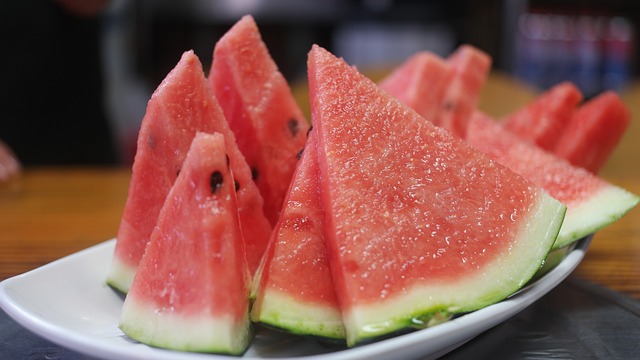Watermelon
Watermelons are low in calories and rich in water content, making them a c. They also contain vitamins such as vitamin C and A, as well as minerals like potassium
Origin and Distribution:
Watermelons are believed to have originated in Africa, and they have been cultivated for thousands of years. Today, they are grown in many countries around the world, with China being the largest producer.
Varieties:
There are numerous varieties of watermelons, ranging in size, shape, and color. Some common types include seedless watermelons, which have small, edible seeds, and traditional watermelons with black seeds.
Nutritional Content:
Watermelons are low in calories and rich in water content, making them a hydrating fruit. They also contain vitamins such as vitamin C and A, as well as minerals like potassium.
Health Benefits:
Hydration: With a water content of over 90%, watermelons are a great hydrating fruit.
Antioxidants: Watermelons contain antioxidants like lycopene, which may help protect cells from damage.
Nutrient Boost: They provide vitamins and minerals, contributing to overall health.
Consumption:
Watermelons are often enjoyed fresh, sliced into wedges or cubes. They are a popular choice for picnics, barbecues, and summertime snacks. In some regions, watermelon is also used to make juices, smoothies, and desserts.
Cultivation:
Watermelons require warm temperatures to thrive and are typically grown in well-drained soil. They are often planted in the spring and harvested in the summer months.

Tags : vitamin C and A, Minerals like potassium, Rich in water content.